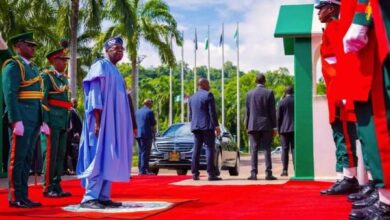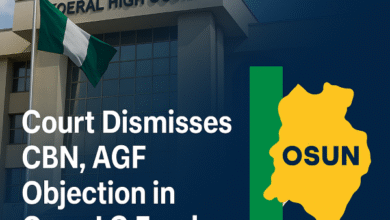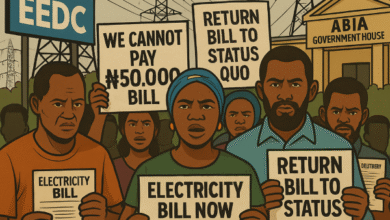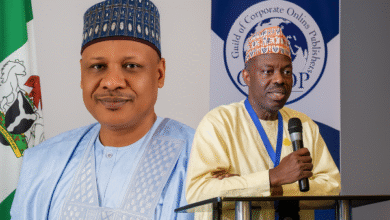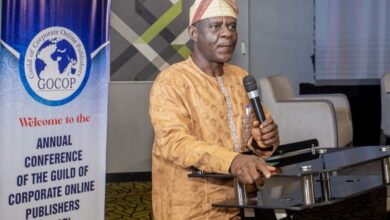NEWS
FG launches 5-year strategic framework for Women Economic Empowerment
 The Federal Government has launched the National Women’s Economic Empowerment (WEE) Policy, Nigeria Country Gender Equality Profile and the Development Partners Group on Gender (DPGG) Equality Women’s Coordination Strategic framework for 2023-2028.
The Federal Government has launched the National Women’s Economic Empowerment (WEE) Policy, Nigeria Country Gender Equality Profile and the Development Partners Group on Gender (DPGG) Equality Women’s Coordination Strategic framework for 2023-2028.The event was organised in Abuja on Friday by the Federal Ministry of Women Affairs (FMoWA) in collaboration with the Federal Ministry of Finance, Budget and National Planning.
Mrs Pauline Tallen, Minister of Women Affairs, said the programme would address policy gaps and catalyse multisectoral partnerships to drive women’s economic empowerment and gender equality in Nigeria.
Tallen noted the disparity women faced in accessing financial benefits as well as in economic, political and social spheres, in spite of their huge contribution in all areas in society.
“We had to seek for ways to change these narratives resulting in the National WEE Policy and Action Plan being launched today.
” The WEE Policy of the Federal Government of Nigeria builds on the National Gender Policy and other gender-relevant sectoral policies.
” The WEE Policy combines expert perspectives, government priorities and grassroots voices of Nigerian women engaged over the course of the past 24 months to propose high-impact.
” The policy draws attention to key sectors, where most Nigerian women and girls are employed or likely to pursue livelihoods, such as agriculture, entrepreneurship, the traditional labour market, education and skills.
According to her, the policy will also recognise cross-cutting enablers as Women’s Financial Inclusion (WFI) and Literacy, Digital Innovation, Literacy, Access, Household, Workplace, and Community Support Structures.
The minister also unveiled the country’s Gender Equality Profile and the DPGG Gender Equality Women’s Empowerment Coordination Strategic Framework 2023-2028 to enhance gender equality and reduce poverty.
” Its existence and even more so, this Strategy Note, is a testament to the potential and power of coordinated efforts to deliver on our shared goals and aspirations.
“To see and live in a Nigeria where the rights of women, girls and vulnerable persons are truly respected in all ramifications,” she said.
Mr Shubham Chaudhuri, World Bank Nigeria Country Director, who spoke virtually, reiterated their commitment toward supporting the Nigerian Government to promote gender equality and women empowerment.
Similarly, Mrs Ene Obi, Nigeria’s Country Director, ActionAid, said the strategic framework would enable all the Development Partners Group on Gender (DPGG) to coordinate all their programmes on gender equality, women empowerment and poverty eradication in the country.
”This framework will help the DPGG as a collective to address most of the coordination issues around gender and women’s rights interventions.”
She said the DPGG on gender, women empowerment and accountability group had over 100 multilateral government agencies, donor organisations, development partners, amongst others to enhance coordination in alignment with national and state machineries.
Obi, therefore, expressed appreciation to all development partners, NGOs and the Federal Government for their support and commitment toward addressing issues affecting women and girls.


